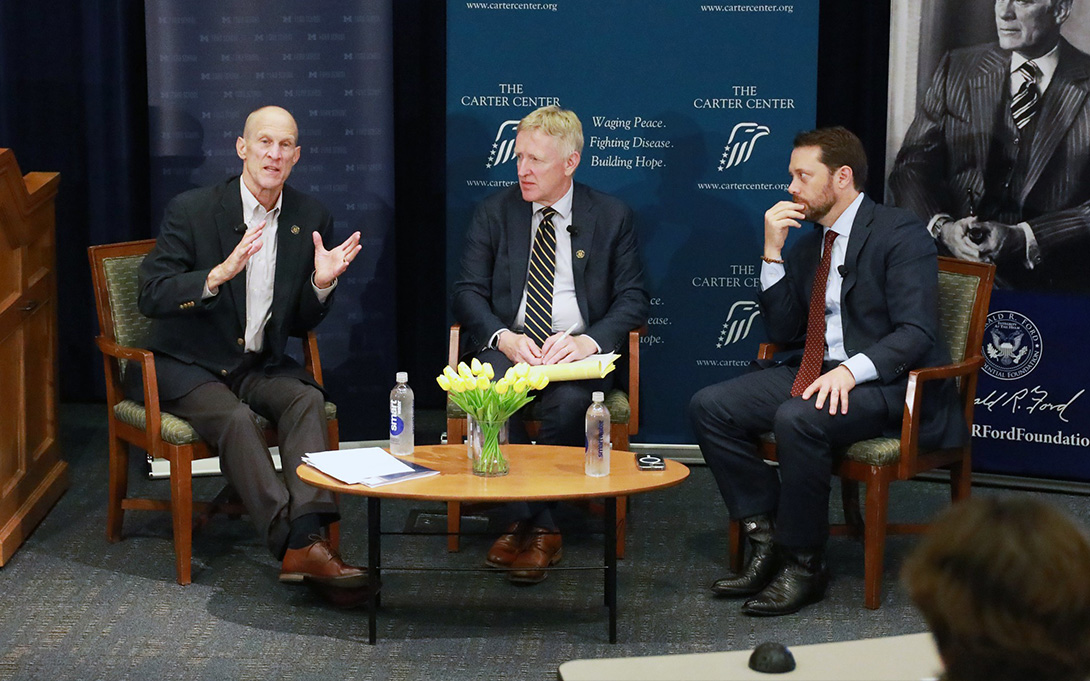
Descendants of Presidents Ford and Carter proposed new principles to make sure upcoming elections will be fair, secure, and trusted by the American people.
The Ford School of Public Policy hosted the Carter Center, Ford Presidential Foundation, and More Perfect for an event that addressed, “How DO we Run Fair, Safe Elections?” in an event that featured Mike Ford, son of President Gerald Ford and Jason Carter, grandson of President Jimmy Carter, on September 11, 2024.
Carter outlined the five core principles that underpin this framework:
- Honesty- that there's an honest process.
- Nonviolent campaigning.
- Secure voting - to ensure that the system itself works. And with enough transparency to be trusted.
- Responsible oversight, which means that people have access and transparency to look at and examine the way that the system works.
- Trust in the outcome.
Ford said the nonpartisan initiative is necessary in these divided political times. Comparing the national distress following Watergate, Vietnam, and the 1973 energy crisis to the turbulence of this current political moment, Ford observed, “It was a tumultuous, tumultuous time, and not unlike what we have today in some ways.”
He went on to emphasize the importance of President Ford’s commitment to the peaceful transfer of power, quoting from his father’s first address to the American people after being sworn into office: “My fellow Americans, our long national nightmare is over. Our Constitution works. Our great republic is a government of laws and not of men,” Ford reflected. “It kind of resonates with the principles for trusted elections...that there is a code of not only ethics, but legal guidelines and processes that have stood the test of time, and that is what holds us together.”
Jason Carter expressed concern about the rise of election-related misinformation on social media, but also noted that the historical disenfranchisement of minority communities has contributed to contemporary distrust in elections: “When people talk about voter intimidation, voter suppression in the black community in Georgia, those memories are raw and real, and they are based on, you know, not mis- and dis-information, but the actual history of the movement.”
To repair this trust and assuage public fears about election security more broadly, Carter concluded that returning to the country’s democratic principles can serve as the foundation for a more unified America: “If we only focus on the things that are different from person to person or from political party to political party, and that's what gets 100% of the attention and 100% of the oxygen, it makes us feel like we're more divided than in fact we are. And so I think that as we broaden this out and we really start thinking about what our democracy really looks like and who it is that we are, I think we pretty much agree.”
Carter and Ford both underscored their hope that, as the frenzied media environment and fiery rhetoric of the upcoming presidential election gets elevated, the principles of trusted elections can help ground collective values - of fairness, transparency, accountability, and democracy.
This article was written by Rebecca Coyne.